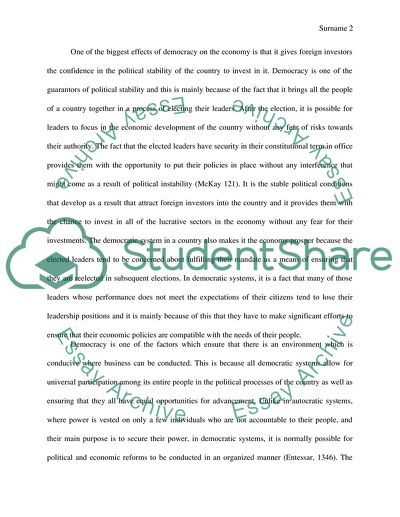Cite this document
(Effect of Democracy on the Economy Research Paper, n.d.)
Effect of Democracy on the Economy Research Paper. Retrieved from https://studentshare.org/social-science/1820393-effect-of-democracy-on-the-economy
Effect of Democracy on the Economy Research Paper. Retrieved from https://studentshare.org/social-science/1820393-effect-of-democracy-on-the-economy
(Effect of Democracy on the Economy Research Paper)
Effect of Democracy on the Economy Research Paper. https://studentshare.org/social-science/1820393-effect-of-democracy-on-the-economy.
Effect of Democracy on the Economy Research Paper. https://studentshare.org/social-science/1820393-effect-of-democracy-on-the-economy.
“Effect of Democracy on the Economy Research Paper”, n.d. https://studentshare.org/social-science/1820393-effect-of-democracy-on-the-economy.


